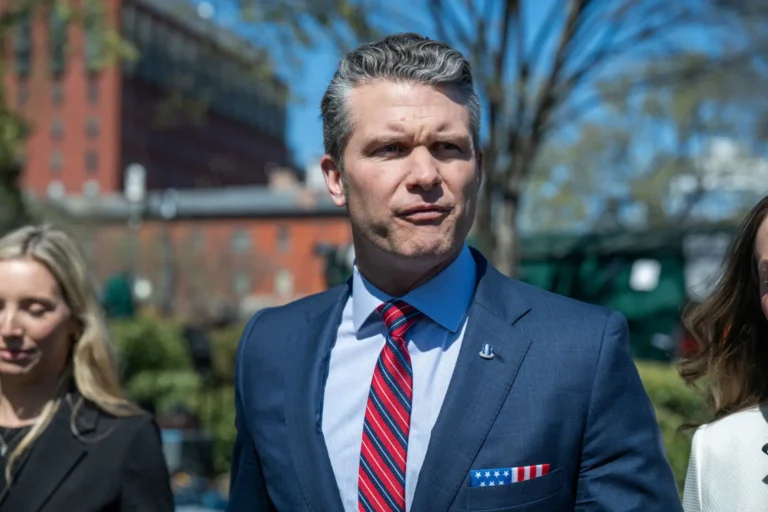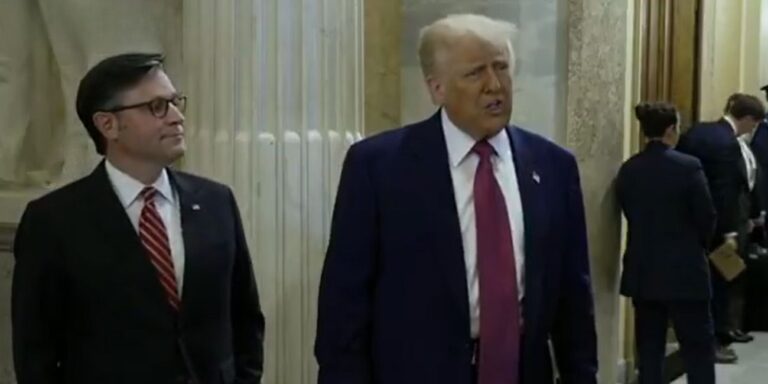NEW YORK CITY — Jurors on the Daniel Penny chokehold trial returned to deliberations for a fourth day Friday for just an hour before telling the court they could not come to an agreement on the top charge, manslaughter, as they weigh the fate of a 26-year-old Marine veteran and architecture student accused of killing a mentally ill homeless man who threatened to kill people on a Manhattan subway car.
Around 11 a.m., the jurors sent a note to the court stating, “We the jury request instructions from Judge [Maxwell] Wiley. At this time, we are unable to come to a unanimous vote on count 1 – manslaughter in the second degree.”
The judge sent them back to deliberate more, but they told the court shortly after 3 p.m. that they still could not reach a unanimous decision.
The charge requires prosecutors to prove that Penny acted with recklessness when he grabbed Jordan Neely in a chokehold. Neely had barged onto the train while high on drugs, threatening to kill passengers during a psychotic episode, according to trial testimony.
“In this case, I think that they can’t move on to count 2 unless they find the defendant not guilty of count 1,” Wiley told attorneys for both sides, despite protests from the prosecution. “I have to at least try to ask the jury to find a verdict on count 1.”
After the second note from the jury, Assistant Manhattan District Attorney Dafna Yoran said she would consult with her team and the prosecution might ask to have the top charge dismissed to allow the jury to debate the lesser charge of criminally negligent homicide, which carries a maximum punishment of four years in prison.
Wiley earlier gave the jurors “Allen charge” instructions after giving the attorneys time to review, but they still failed to reach a consensus.
Allen charges refer to jury instructions given to a hung jury urging them to agree on a verdict. They have a controversial history, with critics warning they can push jurors to change their views under peer pressure. They get their name from an 1896 Supreme Court decision in Allen v. United States.
Penny’s defense asked for a mistrial to be declared, but the judge said he would give jurors more time and read them the Allen charge instructions.
Wiley told the jurors their vote must be unanimous, and if they cannot reach a unanimous verdict on the top charge, a new trial will have to be set with a new jury.
“You’ve been a very good jury, and there’s no reason to think that any other jury in a future trial will be any more intelligent or fair than you are,” he said.
Wiley asked them not to violate their consciences but to look at the facts again with a “fresh slate.”
“Given the factual complexity of the case, I don’t think it’s been too long,” he said.
Wiley sent them back to the jury room just after noon to pick up deliberations, and 30 minutes later they asked the judge to clarify the definition of a
“reasonable” person as they continue to weigh whether Penny’s actions were reasonable and justified or criminally reckless.
“They are being very deliberate and have since sent a note regarding the reasonable person standard. This reflects on the justification charge. If the jury does find the Government failed to disprove justification, the charges, including the top count, will be dismissed.”
“A deadlocked jury on the top charge is not a victory for the defendant in a case that should never have been brought to begin with,” said Paul Mauro, a former NYPD inspector. “Daniel Penny is a young man spending thousands on attorneys, he faces a civil case, and a district attorney’s office that has chosen ideology over law enforcement may well retry him if we get a mistrial. His liberty remains at risk. This is not justice.”



